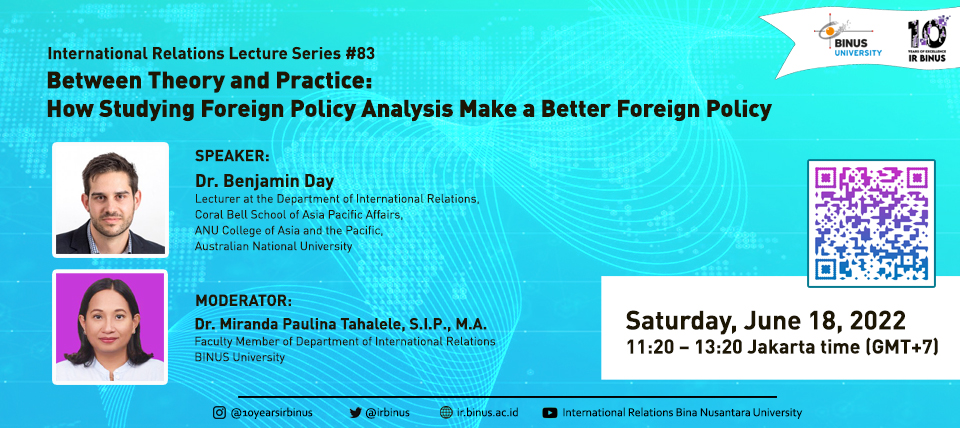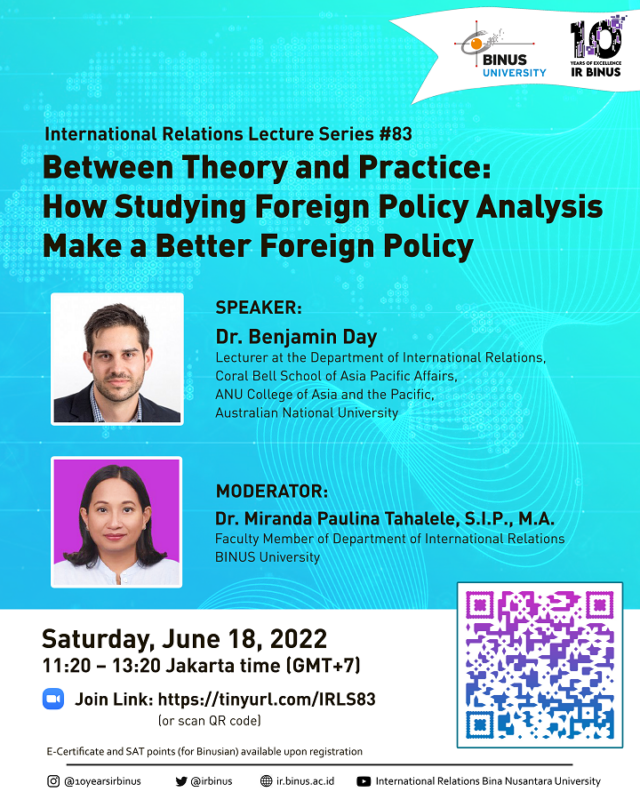‘Seeing’ Foreign Policy Analysis

On Saturday, June 18, 2022, two guest speakers from the Australian National University (ANU) spoke as guest lecturers with students from the International Relations department of Bina Nusantara University (Binus). They were Dr. Benjamin Day, lecturer in the International Relations department of ANU, and Dr. Carly Gordyn, post-doctoral research fellow at the Coral Bell School of Asia Pacific Affairs of ANU. They spoke about “seeing” Foreign Policy Analysis (FPA).

Dr. Day divided his presentation into three parts: The first part was about conceptualizing FPA, or our ways of seeing foreign policy. The second part was about FPA’s blind spots, or things that we do not see in foreign policy decision making. Finally, the third part was about trust and FPA, something that Dr. Day argued we should look at more closely.
On conceptualizing FPA, Dr. Day argued that to systematically understand events of foreign affairs, we should look at various factors influencing the foreign policy decisions as different framework for analysis, including the individual, domestic, and international determinants. However, he warned that we examine these determinants to be able to see the big picture, not to see these smaller components isolated.

On FPA’s blind spots, Dr. Day said that there are things we cannot see in foreign policy decision making. There are four FPA’s blind spots: First, that FPA subfield is US-centric and crisis-centric. Second, that FPA is still uncertain about the role of the next generation of scholars. Third, that FPA draws heavily on other disciplines while being a subdiscipline of International Relations (IR). On trust and FPA, Dr. Day argued that trust is critical in negotiations, and that leaders function as referents for a state’s trust and trustworthiness.
